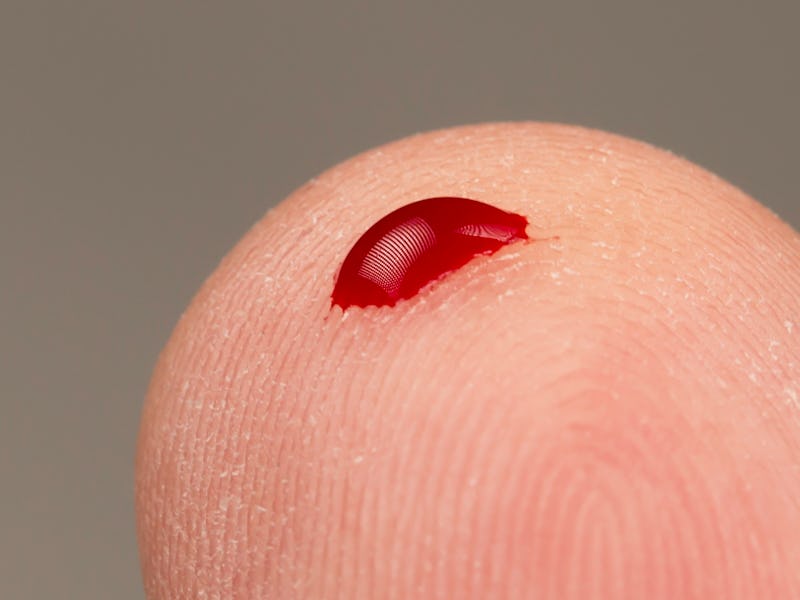Elizabeth Holmes and Theranos Failed Because Medicine and Startups Don't Mix
What happens when the money wants exponential growth and regulators want documentation? Nothing good.

The American healthcare system desperately needs innovation. The U.S. spends 50 percent more than the average developed nation propping up an ailing medical industry and has a sicker population to show for it. No wonder then that Theranos, the $9 billion tech startup that promised to transform blood tests using a secretive diagnostic tool dubbed Edison, got so much hype and so much investment. Elizabeth Holmes, the company’s 32-year-old founder and CEO great, expected Theranos to grow exponentially as a business, but the science never kept up and the regulators began to circle.
Holmes had a great story and hundreds of millions in venture capital, but she consistently failed to present peer-reviewed evidence proving the effectiveness of her technology. Now, federal health regulators intend to ban Holmes from the blood-testing business for two years for failing to deal with issues at her company’s labs. Theranos still has an opportunity to convince the Centers for Medicare and Medicaid Services that sanctions are unnecessary, but it doesn’t look good. Can a startup designed to make sense in the context of Sand Hill Road pitch meetings also work with scientific institutions and at a scientific pace? Unlikely.
The traditional route for medical innovation can be painfully tedious. A new technology or therapy must be proven safe and effective in a gauntlet of expensive trials, with results placed under the careful scrutiny of the medical community. Theranos lives outside of this world, by design. But the “proprietary” approach is risky as all get out. Companies like Theranos better come correct the first time out or their growth plans are just scrap paper.
And initial failures, which most medical researchers would have viewed as inevitable, seem to have started the dissolution of the Theranos mission. In October of last year, the Wall Street Journal published a lengthy investigation into the company. It found that Theranos was using traditional blood analysis machines — not its own touted tech — to conduct most tests, and may have failed to report test results that raised questions about the accuracy of the Edison device. An inspection by regulators later confirmed much of this. The company was subsequently admonished for inaccurate test results, poorly trained personnel, and subpar laboratory standards of practice.
Theranos founder Elizabeth Holmes.
The message from regulators to biotech startups and their investors is clear — you cannot live outside of the rules of academic scrutiny. If you have a technology that’s going to improve healthcare, prove it. If you don’t, you’ll be shut down.
And it’s not the first time. In 2013 the Food and Drug Administration ordered 23andMe to stop selling health-related genetic information to Americans until it could prove the accuracy of the tests. The FDA worried that providing consumers with information about their genetic predisposition to certain diseases could do unintended harm, especially if results were not consistently accurate. Last year 23andMe reintroduced a scaled-back version of its genetic test, with FDA approval.
Though startup culture and academic research culture are at odds with each other, they could both benefit from a bit of mixing. Theranos revealed a need for better blood tests, and has proved that this is an idea people can get really excited about. It simply failed to show its work and present a viable, testable product. Perhaps a blood test that truly outperforms the competition will rise up out the dust of this debacle. Perhaps not. What the market wants and what constitutes good medicine aren’t necessarily the same thing.
While it’s easy to agree that cheaper and less painful blood tests are a good thing, it does not follow that more testing is always better. Conducting unnecessary diagnostic tests is at best a waste of time and resources, and at worst, leads to over-diagnosis, unhelpful treatment, and real harm to patients. Beyond making blood tests easier and more accessible, Theranos wanted to sell them to patients directly, without a doctor deeming them necessary or helping to interpret results.
Biotech startups can’t reasonably be expected to behave like normal startups. When they do, investors and observers should be suspicious. If it looks like a unicorn and sounds like a unicorn, it’s probably a horse with a traffic cone strapped to its head.